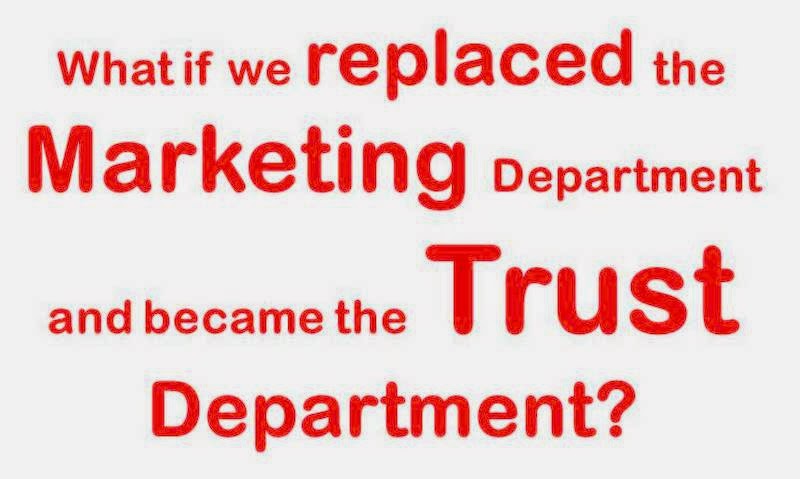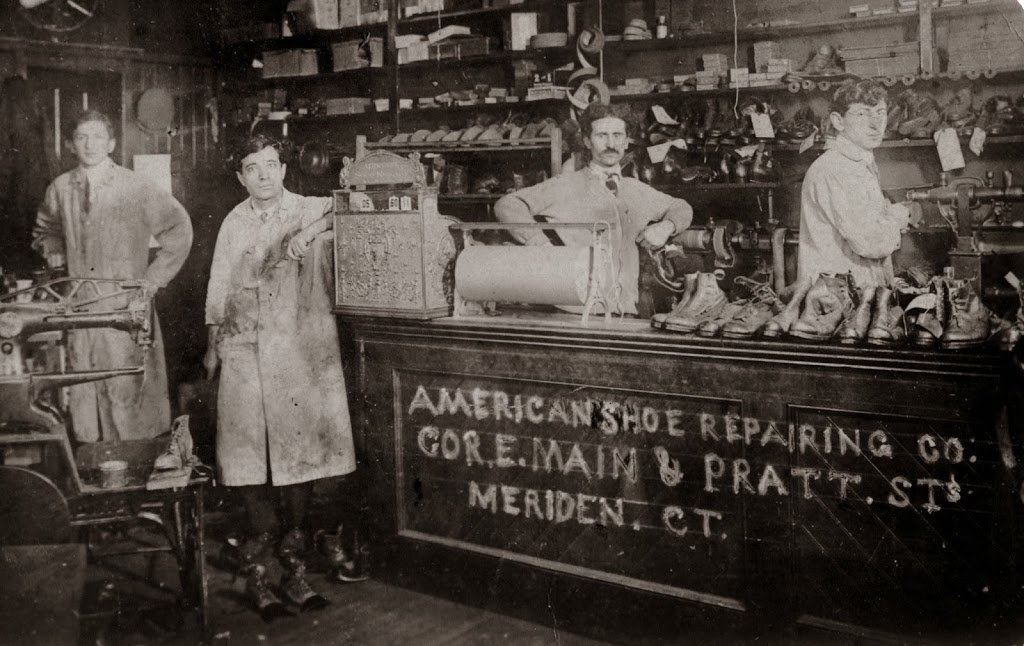 |
|
|
Should the Marketing Department be erased from our memories?
Does your marketing department need to be sent out to pasture to graze and just go away? Is it weighed down by old stereotypes and suspicion? Is it burdened by the negative impressions of slick hucksters and showman? Is it a disadvantage to even have the word marketing on your business card?
Time for a Change
What if we marketing professionals changed our name? How about repositioning who we are to the business community? Our responsibility would still be to manage the reputation of the company, our brands and to maintain the trust of our customers. We would still be the farmers seeding the future relationships of new customers.
Only our name would be “new and improved”.
Only our name would be “new and improved”.
What would the TRUST department do?
We would give value to customers without asking for anything in return.
We would offer products that are embedded with meaningful differences to them not me-too products.
We wouldn’t hide behind clever promotions but instead give them something useful to talk about to their customers.
We would distinguish our products from the category, from commodity and our difference would matter to our customer.
We would stop pushing messages out to them that annoy them.
We would offer products, ideas and insights that they would be excited to share with their customers and communities.
We would earn trust over time.
We wouldn’t risk their faith in our relationship over a few dollars.
We would honor our word and the spirit of our intention.
We would provide to our greater community of shareholders value, transparency and respect.
And with a new name, we might be seen in a new light.
And with a new name, we might be seen in a new light.
 |
| Moving the needle on the trust factor |
Trust Officers
The Trust Department would have at the helm a Chief Trust Officer. She would manage a team including a Vice President of Trust, a Director of Trust and several Trust Managers.
We would leave behind an old image that is rooted in a 1950’s mentality about business.
Maybe it is time for the cobbler’s kid to have a new pair of shoes. What do you think?





